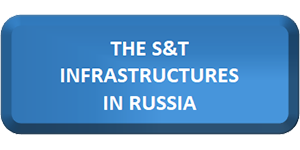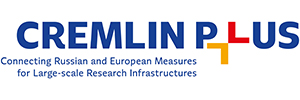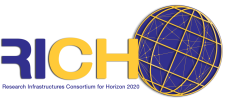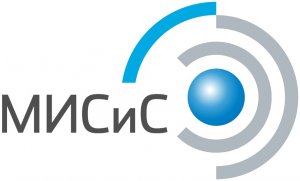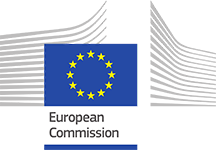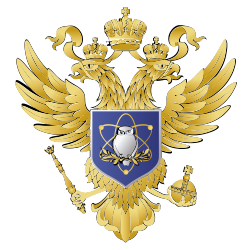



RUSSIA AND EU COMBINE THEIR EFFORTS TO COMBAT HIV, TUBERCULOSIS AND HEPATITIS C
Technical meeting to prepare a coordinated call in Health and to present topics for future EU-Russia cooperation on Health research was held at Moscow State University on 16 May, 2017.
Joint call on infectious diseases will be launched in the end of 2017 in frames of Work Programme 2018-2020 Horizon 2020 and Action 2.2 Federal Targeted Programme for Research and Development in Priority Areas of Development of the Russian Scientific and Technological Complex for 2014-2020.
Russian and European scientists will initiate collaborative projects aimed at increase of efficacy and diagnostics of infectious diseases burdening healthcare in developed societies. Attention will be focused on HIV, hepatitis C virus and tuberculosis problems.
Representatives of the EU-member states Embassies (France, Germany, Denmark, the Netherlands, Czech Republic) took part in the event. They presented a short update on bilateral S&T cooperation with Russia and perspectives for future cooperation.
All the participants of the event indicated great potential for collaboration of Russia and the EU.
Presentations that were maid during the event are available at http://www.h2020-health.ru/en/node/459
Sources of information:
The Russian Health NCP http://www.h2020-health.ru/en/node/458
The website of the Ministry of Science and Education of RF: http://минобрнауки.рф/%D0%BF%D1%80%D0%B5%D1%81%D1%81-%D1%86%D0%B5%D0%BD%D1%82%D1%80/10067

BIGGEST X-RAY LASER IN THE WORLD GENERATES ITS FIRST LASER LIGHT IN HAMBURG
The European XFEL, the biggest X-ray laser in the world, has reached the last major milestone before the official opening in September 2017. On 05 May 2017, the 3.4 km long facility, most of which is located in underground tunnels, has generated its first X-ray laser light.
«The first laser light produced today with the most advanced and most powerful linear accelerator in the world marks the beginning a new era of research in Europe», — Helmut Dosch, Chairman of the DESY Directorate, said (DESY is one of the XFEL collaborators).
The X-ray laser light of the European XFEL is extremely intense and a billion times brighter than that of conventional synchrotron light sources. The achievable laser light wavelength corresponds to the size of an atom, meaning that the X-rays can be used to make pictures and films of the nanocosmos at atomic resolution- such as of biomolecules, from which better understandings of the basis of illnesses or the development of new therapies could be developed. Other opportunities include research into chemical processes and catalytic techniques, with the goal of improving their efficiency or making them more environmentally friendly; materials research; or the investigation of conditions similar to the interior of planets.
12 countries, including Russia, contribute to the European XFEL.
The official start of research operation of the European XFEL is planned for September 2017.
Source of information: http://www.jinr.ru/posts/biggest-x-ray-laser-in-the-world-generates-its-first-laser-light
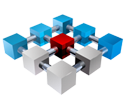
THE SIXTH COMPETITION FOR THE “MEGAGRANTS”
Ministry of Education and Science of the Russian Federation announced 6-th open call for grants of the Government of the Russian Federation for state support of scientific research conducted under the auspices of leading scientists in Russian educational institutions of higher education, scientific institutions subordinate to the Federal Agency for Scientific Organizations, and state scientific centers of the Russian Federation.
Grants of the Government of the Russian Federation in the amount of up to 90 million rubles each will be awarded on the competitive basis for conducting scientific research over 3 years (2018 – 2020).
Russian educational institutions of higher education or scientific institutions subordinate to the Federal Agency for Scientific Organizations or state scientific centers of the Russian Federation can apply in collaboration with a Russian or foreign leading scientist occupying one of the top positions in a specific scientific field.
Applications should be submitted before 18 hours 00 minutes (Moscow time) 14 July 2017.
Winners of the competition will be notified no later than 15 November 2017.
Further information and call documentation:
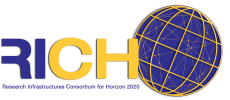
RICH Symposium "Fostering the Innovation Potential of RIs"
RICH, the network of National Contact Points for H2020-Research Infrastructures programme, organizes the symposium “Fostering the Innovation Potential of Research Infrastructures", on 8 May 2017, in Lisbon (Fundação Calouste Gulbenkian , FCG).
The Symposium, organized in collaboration with the European Commission (DG RTD), aims to provide a platform for effective, high-level interaction between both Research infrastructures projects and/or national RIs and industry. Even though the potential of RIs to foster innovation is clearly recognized – with industry as supplier or as user of the different RIs – it is still underexplored.
The event will cover issues related to:
- Innovation at the RI level and project level;
- Policy tools and instruments;
- Innovation in Action & Clusters and spin-offs;
- Fostering the Innovation Potential of RIs, all related to Research Infrastructures' landscape.
Live streaming of the Symposium will be available on the webpage:
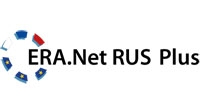
ERA. NET RUS PLUS CALL 2017 FOR S&T PROJECTS
The goal of the ERA. Net RUS Plus Call 2017 for S&T projects is to create a long-term research collaboration in the field of research, technology and innovation between EU Member States/Associated Countries and Russia.
Research proposals can be submitted in Nanotechnologies, Environment/Climate change, Health, Social Sciences and Humanities, Robotics.
Participating countries: Belgium, Bulgaria, Estonia, Finland, Germany, Latvia, Moldova, Romania, Russia, Serbia, Slovakia, Switzerland, Turkey
Proposal submission deadline: 04.07.2017 at 15.00 CEST (16.00 Moscow time)
General information and Terms of Reference of the Joint Call on S&T are available at:
http://www.eranet-rus.eu/en/196.php
Proposal submission must take place in electronic form by using the PT-Outline web tool accessible at:
https://secure.pt-dlr.de/ptoutline/app/users/login/RUS_ST2017
More information: http://www.eranet-rus.eu/


